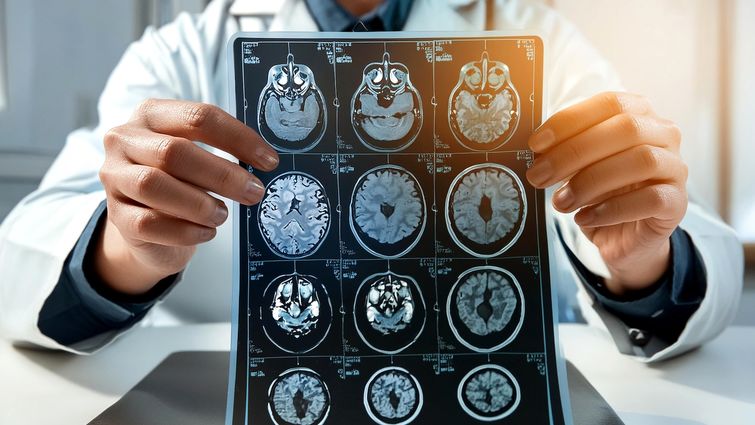

Dr. Lucas Restrepo says that those over 65 who experience daily memory problems should talk with a doctor
Memory is a complex process that involves different systems in the brain and can be divided into two main types: short-term and long-term memory.
Short-term memory helps us retain information that is useful at the moment, like remembering where we parked our car or what we need to do in the next few minutes. This type of memory is temporary and isn’t needed for future use.
Long-term memory stores information that remains with us for years, such as childhood experiences, important life events, learned skills, or even jingles from a commercial we heard twenty years prior.
However, memory is not just about retrieving information but also about how well the brain can take in and process new experiences.
Lucas Restrepo, MD, PhD, a neurologist at Loma Linda University Health, says that before something becomes a memory, it must first be recorded, which requires attention.
“Memory means bringing information out,” Restrepo says. “To have the imprint of information, you have to pay attention to it, record it, and then be able to pull that memory out of the storage anatomical apparatus, which is the brain.”
When this act of recalling information becomes a struggle, it’s important to know whether it’s a memory lapse or signs of a more serious neurological condition such as Alzheimer’s disease.
A senior moment or something more?
Many people joke about having a "senior moment" when they forget something, and while occasional memory lapses are normal, Restrepo says they’re often more about paying attention to too many things rather than memory deficits, especially if you’re under 65.
A distinguishing feature of normal aging is that while recent recall may slow down, long-term memories tend to remain intact. People may occasionally forget where they left their keys or the name of someone they recently met, but they typically retain older, well-established memories, like where they went to high school or the name of their first pet.

MRI of a brain with memory problems showing otherwise mild thinning of the brain (which is expected with age), along with mild vascular changes in the white matter due to high blood pressure and high cholesterol. Overall, these changes are pretty unremarkable.
These so-called "senior moments" are a natural part of aging, but a noticeable decline in independence or function is not.
“One of the key signs to watch for is difficulty recalling recently acquired information,” Restrepo says.
For instance, struggling to remember a famous person’s name or where you parked your car is normal and often resolves after a few moments. However, when memory issues begin to interfere with daily life — such as forgetting how to complete routine tasks or struggling to manage responsibilities independently — it may indicate a more serious condition. For example, struggling to navigate a grocery store, forgetting how to use a credit card, or frequently misplacing important items like a wallet or phone may suggest a deeper issue.
Additionally, if someone begins to require regular assistance with tasks they used to manage independently, it’s a sign that their cognitive function may be declining beyond typical aging.
“If memory lapses occur daily, worsen over time, or cause anxiety, speaking with a doctor is a good first step,” Restrepo warns. “A primary care physician can conduct initial assessments and, if needed, refer the individual to a neurologist for further evaluation.”
Alzheimer's vs dementia
Alzheimer’s disease is a progressive neurological disorder in which brain cells gradually degenerate and die. This may eventually lead to a decline in cognitive abilities, particularly memory, reasoning, and problem-solving. The exact cause of Alzheimer’s is not fully understood, but Restrepo says there are key factors that contribute to its development.
-
Genetics: While genetics alone do not determine whether someone will develop Alzheimer’s Disease or dementia, one of the strongest risk factors for people is the ApoE4 gene, which impairs the brain’s ability to clear out waste products. According to the National Institutes of Health, “people who carry two APOE4 copies, called APOE4 homozygotes, have been estimated to have a 60% chance of developing Alzheimer’s disease dementia by age 85.”
-
Amyloid plaques: People with Alzheimer’s disease have a lot of sticky proteins called amyloid and tau. Sticky proteins accumulate in the brain between neurons, disrupting the brain’s normal architecture, while tau accumulates inside of neurons, causing problems in the normal movement of molecules inside of cells. This may happen because of excess production of the proteins or a problem getting rid of them.
-
Inflammation and energy use: People with Alzheimer’s experience inflammation in the brain and a decline in the ability of neurons to use energy efficiently, leading to their gradual deterioration and death.
-
Poor brain circulation: Persons with Alzheimer’s also have problems with the very tiny arteries of the brain, which may not work as well because of thick and fragile walls.
Dementia, on the other hand, is a broad term that refers to a decline in cognitive function severe enough to interfere with daily life and independence. Restrepo emphasizes that dementia is not a disease itself but rather the potential outcome of several different conditions, with Alzheimer’s being the most common cause.
“A key distinction is that while Alzheimer’s disease is a specific condition with characteristic changes in the brain, while dementia is a general term meaning loss of independence due to cognitive problems,” Restrepo explains. “Not everyone with dementia has Alzheimer’s, but everyone with Alzheimer’s has a significant risk of developing dementia as the disease progresses.”
While the biggest risk factor for dementia is aging, the APOE4 gene can contribute as well. However, even if you inherit one or two copies of the APOE4 gene, Restrepo says that it doesn’t mean you’re destined to develop the disease.
Diagnosing memory decline

Amyloid PET scan shows widespread deposition of radiotracer (yellow-red signal), indicating Alzheimer’s Disease.
To diagnose a neurological memory disorder, doctors conduct a series of evaluations and tests. The process begins with a primary care doctor, who can conduct an initial screening, perform a quick neurological exam, and order basic tests to check for underlying conditions such as kidney or liver problems, vitamin deficiencies, or metabolic issues that could contribute to memory difficulties. Imaging tests like a CT scan or MRI can also be helpful in ruling out potential causes of memory issues.
If these initial tests come back normal but memory concerns persist, Restrepo says the next step is a referral to a neurologist, who conducts more in-depth cognitive and neurological assessments and may recommend a PET scan, which is a specialized brain imaging test that can detect changes associated with Alzheimer’s disease.
Can memory be improved?
With advancing technology, numerous memory applications claim to boost cognitive function, but Restrepo says they are not proven to enhance memory in the long term.
“The number one thing for improving or retaining memory is to be as healthy as possible, which means focusing on the basics,” he says.
Those basics include the following:
-
Diet: Eating a balanced, nutritious diet with plenty of vegetables and whole foods and avoiding processed foods that are full of chemicals can significantly impact brain health.
-
Exercise: Engaging in regular physical activity, whether it's walking, running, dancing, or swimming, helps improve circulation and brain function. Anything that gets the heart rate up benefits cognitive health.
-
Medical health: Managing conditions like high blood pressure, diabetes, and high cholesterol is critical, as they all contribute to cognitive decline. Regular checkups help catch and manage these issues early.
-
Engagement: Staying engaged in community and family by talking and interacting meaningfully with others.
It’s easy to get caught up in the idea of a "quick fix" like an app, but memory health is about taking care of the whole body.
Hope for the future
While there is no cure for Alzheimer’s disease, Restrepo says there are reasons for optimism as future medicines may delay the onset and progression of the disease. Delaying its impact and reducing the severity of symptoms over time could make a huge difference in people's quality of life.
If you or a loved one is concerned about declining memory, Restrepo says it’s perfectly legitimate to talk with a doctor about your concerns, especially for anyone 65 or older.
Need to see a provider in person but not sure where to go? Here is your guide to help you quickly find which service is right for your situation: Know Where to Go



